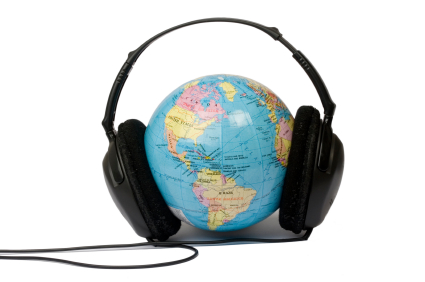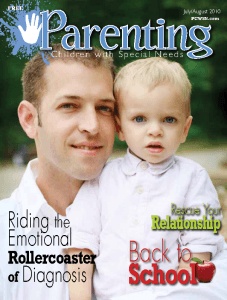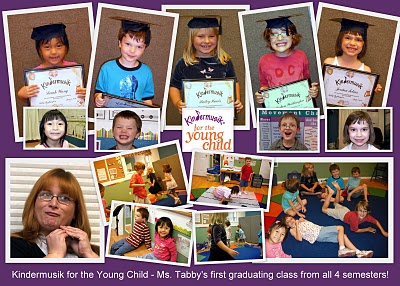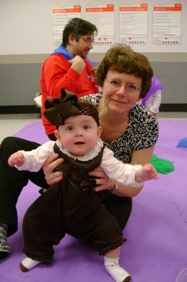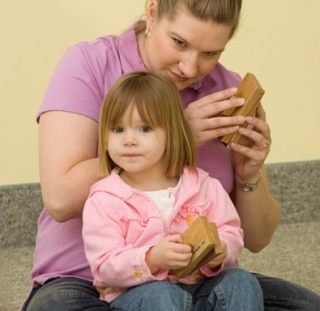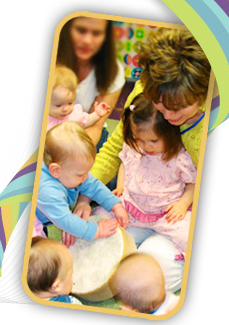 Today was the final class for my first group of “graduating” kids, who are moving on from Kindermusik to other activities. When I first became licensed as a Kindermusik Educator, I had no idea what to expect. My first year, I had less than a dozen students, and struggled to keep up with the demands of memorizing so many lesson plans in addition to my regular private lessons and my job as Korben and Sophie’s mom.
Today was the final class for my first group of “graduating” kids, who are moving on from Kindermusik to other activities. When I first became licensed as a Kindermusik Educator, I had no idea what to expect. My first year, I had less than a dozen students, and struggled to keep up with the demands of memorizing so many lesson plans in addition to my regular private lessons and my job as Korben and Sophie’s mom.
My first two classes were toddlers in Our Time (Sophie’s class) and kids in Young Child, which included Korben and my good friend Carrie’s twins. The second year, I didn’t have enough interest to make a Young Child 3 group, so I called Lisa Arriaga at “Sing and Play Fine Arts” in Pearland to see if she was offering YC 3, and she said, “I’ll offer it if you’ll come teach it!” I didn’t want Korben to miss out, so I jumped at the chance, and I really enjoyed teaching a fun group of girls… and Korben. At the end of the fall, the girls all decided to switch to piano. Korben’s been studying piano in addition to KM since he was 4, so I was disappointed that he wouldn’t get to learn the recorder in Kindermusik class.
Meanwhile, I began a new group of Young Child students on Semester 1 and 2, and that group stayed together through the first year, summer Adventures, and Semester 3. When they re-enrolled in Semester 4, I was thrilled! Korben is 7 now, so he was still young enough to join their class and finish the Young Child program. Another of my private students who was struggling with private instruction also joined the class for this final semester, and we have all had SO much fun this spring.
In order from left to right, I’d like to take a moment to share my favorite experiences with each of these kids. Sarah is the quietest in the class. She often will come and whisper to me what her choice for movement in our hello song is. She is also very sweet and has drawn me pictures and cards that I treasure, and is quite the artist. She is the most musical of all the kids in the class, and practices with dedication that will serve her well as she begins to study piano. Andy is the class clown. He likes to be the center of attention, and I see a career in performance in his future. He is highly intelligent and curious, and has kept me on my toes. Bailey just joined us this spring, but she is very quick to learn all the new songs we sing. She has a great ear and a big voice for someone so small, and she really enjoyed being in a group setting. Korben is the oldest in the group, and he struggled at times with the job of being a good example for the other kids, as not only the oldest, but the teacher’s son. He had the easiest time playing the recorder, since he had a whole year of development on most of the kids. Jordan is my silly sweetheart. She likes to joke around, but she also is the most physically affectionate of the class. She would be happy just to sit in my lap, no matter what we were doing.
As a voice teacher, I am amazed at how much the children’s voices developed over the course of their Kindermusik experience. Without exception, all of the children who graduated today are able to sing accurately on pitch. Jordan’s mom said, “I don’t know where she got it from! It certainly wasn’t me.” Well, I know where Jordan got it from… Kindermusik! The best part about it is that the kids don’t even realize that they’re learning to sing accurately – they think we’re just playing games. They think it’s super fun, and sing all kinds of songs to our simple melodies from class, and that practices that skill of singing on pitch.
I am so grateful to have been given the opportunity to know and love these children. I will miss having them as students, and I know that they will be more successful in all their future educational endeavors for having taken Kindermusik, regardless of whether they’re studying music or math. I look forward to having many more graduating classes in the coming years, but this first class will always hold a special place in my heart.
-Tabby Worthington
Thanks to Tabby and her class for allowing us to share this great story and photo collage. We’re proud of her and these kids, and know they are all on to great things! More info on Tabby’s Houston Bay area Kindermusik program can be found at www.kmtabby.com.
 Let’s take a spin around the world to find some of the wonderful music you’ll hear in Kindermusik this semester. Have a look!
Let’s take a spin around the world to find some of the wonderful music you’ll hear in Kindermusik this semester. Have a look!
